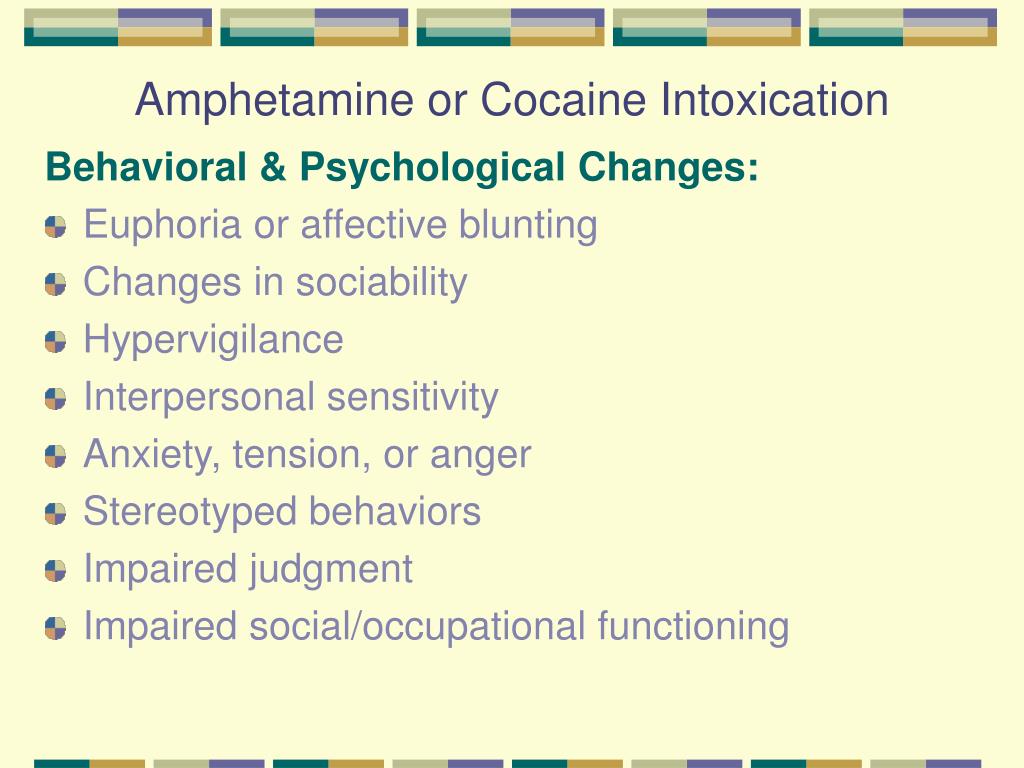

Treated you to help control your heart rate and blood pressure.Given you medicine to help make you calm.Given you fluids to help prevent damage to your kidneys.Patients may present with psychiatric and medical problems that may include seizures, arrhythmias, and psychosis. Giving you medicine to absorb the drugs. Amphetamine abuse is widespread, and overdose is associated with significant and negative impacts on the cardiovascular and neurological systems.Tried to clear the drugs from your body by:.Watched your symptoms or done tests to find out what kind of drug you took.When the doctor treated you for the overdose, they may have: You may see or hear things that are not there, or believe things that are not true. You may have chills, nausea, and vomiting. Taking too much of an amphetamine can increase your heart rate and blood pressure.

An example of a "street drug" is methamphetamine, which may be called meth, speed, ice, and lid poppers. These drugs are often sold illegally and misused. How long it takes to feel better depends on the drug and how much you took of it.Īmphetamines are stimulants that doctors use to treat problems like attention deficit hyperactivity disorder (ADHD). It takes time for the drug to leave your body. You are getting better, but you may not feel well for a while. You may report side effects to the FDA at 1-80.You have been treated for taking too much of an amphetamine drug. Signs and symptoms may be delayed with massive overdose, co-ingestants, and sustained-release preparations Amphetamines undergo hepatic metabolism through the cytochrome p450 CYP-2D6 enzyme system. If you notice any other effects, check with your healthcare professional.Ĭall your doctor for medical advice about side effects. Other side effects not listed may also occur in some patients. Loss in sexual ability, desire, drive, or performance
#Amphetamine overdose professional
Check with your health care professional if any of the following side effects continue or are bothersome or if you have any questions about them: More common Also, your health care professional may be able to tell you about ways to prevent or reduce some of these side effects. These side effects may go away during treatment as your body adjusts to the medicine. To our knowledge this is the first report of oral dextroamphetamine sulfate overdose followed by multiple CNS complications, including angiographic evidence. Some side effects may occur that usually do not need medical attention. Muscle cramps, spasms, pain, or stiffness Get emergency help immediately if any of the following symptoms of overdose occur: Symptoms of overdoseĭizziness, faintness, or lightheadedness when getting up suddenly from a lying or sitting position Uncontrolled vocal outbursts or tics (uncontrolled repeated body movements) Twitching, twisting, or uncontrolled repetitive movements of the tongue, lips, face, arms, or legs Tingling or pain in the fingers or toes when exposed to cold temperatures Talking or acting with excitement you cannot control Sores, ulcers, or white spots in the mouth or on the lips Shakiness in the legs, arms, hands, or feet
#Amphetamine overdose skin
Red skin lesions, often with a purple center Paleness or cold feeling in the fingertips and toes You have been treated for taking too much of an amphetamine drug. Pain or discomfort in the arms, jaw, back, or neck Muscle cramps, pain, stiffness, or spasms Large, hive-like swelling on the face, eyelids, lips, tongue, throat, hands, legs, feet, or genitals Seeing, hearing, or feeling things that are not thereīlistering, peeling, loosening of the skinįast, irregular, pounding, or racing heartbeat or pulse Check with your doctor immediately if any of the following side effects occur: More commonĭelusions of persecution, mistrust, suspiciousness, or combativeness


 0 kommentar(er)
0 kommentar(er)
